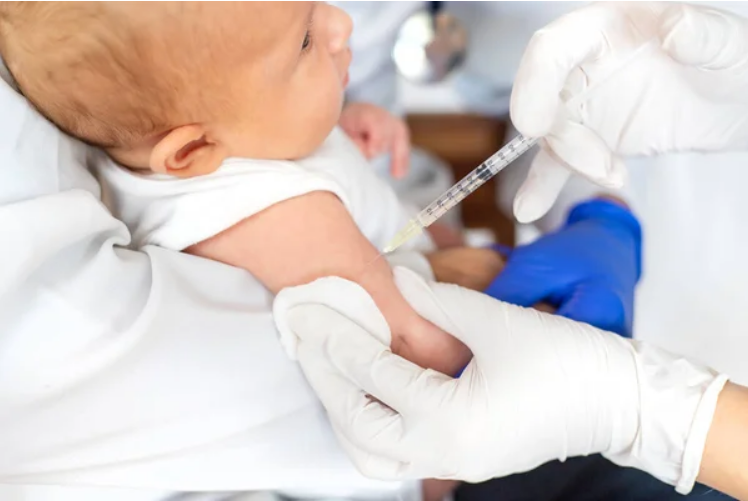Common Questions About Childhood Vaccines Answered
As a parent, your child’s health and safety are paramount. Childhood vaccines are essential in preventing serious diseases, but with so much information available, it’s natural to have concerns. In this blog post, we’ll tackle the most common questions parents have about childhood immunizations, including the benefits and risks, potential side effects, and which vaccines are recommended for infants. Our aim is to provide straightforward, evidence-based answers to help you make the best decisions for your child’s health.
For personalized guidance, consult a trusted Frisco pediatrician who can assist you through the vaccination process.
Are childhood vaccines really necessary?
Absolutely. Childhood vaccines are one of the most important ways to protect your child’s health. They work by exposing the body to a small, weakened, or inactivated form of a disease, which prompts the immune system to build antibodies that can fight off the real thing. This helps prevent your child from getting sick if they’re exposed to the disease in the future. Vaccinations are a key component of primary care for children, ensuring their long-term health and well-being.
Some of the most serious diseases that childhood vaccines protect against include:
- Measles
- Mumps
- Rubella
- Polio
- Diphtheria
- Tetanus
- Whooping cough (pertussis)
- Hepatitis A and B
- Pneumococcal disease
- Rotavirus
- Haemophilus influenzae type b (Hib)
What are the risks and dangers of childhood vaccinations?
Like any medical procedure, vaccines do carry some risks. Most side effects are minor and go away on their own, such as:
- Soreness, redness, or swelling at the injection site
- Low-grade fever
- Fussiness or irritability
- Fatigue
- Headache
Serious side effects, such as allergic reactions, are very rare. For example, severe allergic reactions occur in about 1 in a million doses for most vaccines.
It’s important to remember that the risks of vaccines to infants are much lower than the risks of the diseases they prevent. For example, measles can cause pneumonia, brain damage, and death. The MMR vaccine, on the other hand, has a very low risk of serious side effects. Numerous studies have shown that there is no link between the MMR vaccine and autism, despite persistent misinformation.
Some parents worry about babies shaking after vaccines. While this can be alarming to see, it’s usually not a sign of anything serious. Babies may startle or jerk their arms and legs due to the pain of the injection or as a normal reflex. This is different from a seizure, which is very rare after vaccination. If you’re concerned about your baby’s reaction, don’t hesitate to talk to your pediatrician.
Are there any vaccines to avoid for infants?

In general, infants and young children should receive all the vaccines recommended by the CDC unless they have a medical reason not to, such as a weakened immune system or a history of severe allergic reactions to vaccine ingredients. These vaccinations are essential for ensuring child health and safety, protecting them from potentially serious diseases and contributing to overall public health.
However, some vaccines are not recommended for very young babies due to a lack of safety and efficacy data or because the diseases they prevent are uncommon in infants. For example:
- The HPV vaccine is not recommended for infants because it has only been studied in older children and young adults, and HPV-related cancers are very rare in young children.
- The flu shot is not recommended for babies under 6 months old because their immune systems may not respond well to the vaccine. However, it’s very important for parents and caregivers of young infants to get the flu shot to help protect the baby.
There are also some vaccines that are only recommended for infants in certain high-risk groups, such as:
- The meningococcal vaccine for infants with certain medical conditions or who live in areas with an outbreak
- The tuberculosis (BCG) vaccine for infants in certain countries or whose parents are from countries with high TB rates
Your pediatrician can advise you on which vaccines your baby needs based on their age, health, and risk factors. It’s important not to skip or delay vaccines without a medical reason, as this can leave your child vulnerable to preventable diseases.
What are the most common infant vaccine side effects?
Most babies tolerate vaccines very well, with only mild side effects that resolve quickly. The most common side effects include:
- Soreness, redness, or swelling at the injection site
- Low-grade fever (up to 101°F)
- Fussiness or irritability
- Decreased appetite
- Fatigue or drowsiness
These side effects are usually nothing to worry about and can be managed at home with simple comfort measures like:
- Applying a cool, damp cloth to the injection site
- Giving extra fluids and letting your baby rest
- Dressing your baby in light clothing if they have a fever
- Giving acetaminophen or ibuprofen for pain or fever (check with your doctor first)
More serious side effects, like high fever (over 104°F), prolonged crying for more than 3 hours, or signs of an allergic reaction, are very rare but require immediate medical attention.
Remember, most side effects of infant vaccines are mild and temporary, while the diseases they prevent can cause serious harm. If you have any concerns about your baby’s reaction to a vaccine, don’t hesitate to contact your pediatrician for advice.
How can I minimize the discomfort of vaccines for my baby?
Getting shots is no fun for babies or parents! But there are some things you can do to make the experience less stressful for your little one:
- Stay calm and positive. Your baby picks up on your emotions, so try to project a relaxed and reassuring demeanor.
- Distract your baby. Bring a favorite toy or blanket, sing a song, or make funny faces to take their mind off the shot.
- Cuddle your baby. Physical contact can be very comforting, so hold your baby on your lap or chest during the injection if possible.
- Nurse or feed your baby. Breastfeeding, bottle-feeding, or offering a pacifier dipped in sugar water can reduce pain and distress for babies.
- Use pain-relieving medication if needed. If your baby seems very uncomfortable after the shot, ask your doctor about giving a dose of acetaminophen or ibuprofen.
Remember, the discomfort of vaccines is temporary, but the protection they provide is long-lasting. By staying up-to-date on immunizations, you’re giving your baby a healthy start in life.
Is it safe to give multiple vaccines at once?
Yes, it is safe and effective to give multiple vaccines at the same visit. In fact, this is the standard practice in the U.S. and is recommended by the CDC, American Academy of Pediatrics, and other medical organizations.
Babies’ immune systems are capable of handling multiple vaccines at once. They’re exposed to countless germs every day, and vaccines are just a drop in the bucket compared to what their immune systems deal with naturally.
Giving multiple vaccines at once has several benefits:
- It reduces the number of office visits and shots your baby needs, which can be stressful for them (and you!)
- It helps ensure your baby gets all the recommended vaccines on schedule, without delays that could leave them vulnerable
- It has been extensively studied and shown to be just as safe and effective as giving vaccines separately
Is it better to space out vaccines?
In most cases, it is not necessary or recommended to space out vaccines beyond the CDC’s recommended schedule. The current vaccine schedule is carefully designed to provide the best possible protection for babies and young children when they are most vulnerable to serious diseases.
Delaying or spacing out vaccines may seem like a way to reduce the risk of side effects or avoid overwhelming the immune system, but there is no scientific evidence to support this approach. In fact, spacing out vaccines can have several drawbacks:
- It leaves babies unprotected against serious diseases for longer periods of time. Many vaccine-preventable diseases are most dangerous for young infants, so even a short delay can be risky.
- It requires more office visits and shots, which can be stressful and inconvenient for families.
- It increases the risk of missed or delayed vaccines, as it can be hard to keep track of a non-standard schedule.
- It has not been shown to reduce the risk of side effects or improve safety compared to the standard schedule.
Some parents choose to follow alternative vaccine schedules that space out shots over a longer period of time. However, these schedules are not endorsed by any major medical organization and have not been rigorously studied for safety and effectiveness. They may also give parents a false sense of security, as many of the diseases we vaccinate against can strike at any age.
Are there any long-term side effects of childhood vaccines?
Most side effects from childhood vaccines are mild and short-lived, such as soreness at the injection site or a low-grade fever. Serious side effects, like severe allergic reactions, are extremely rare. Incorporating flu shots and healthy habits into your child’s routine can further boost their immunity and overall well-being.
Conclusion
Childhood vaccines are safe, effective, and crucial for protecting children from serious diseases. It’s normal to have questions about vaccine safety, so seek accurate, evidence-based information from trusted sources like pediatricians.
If you have concerns about vaccines, talk to your pediatrician. They can provide personalized guidance based on your child’s needs and medical history. Remember, making informed decisions about your child’s health is one of your most important roles as a parent.
Got questions about childhood vaccines? Trust Entirely Kids Pediatrics for expert, compassionate care. Call us at 469-425-3600 to schedule an appointment and get the guidance you need for your child’s vaccination journey.

